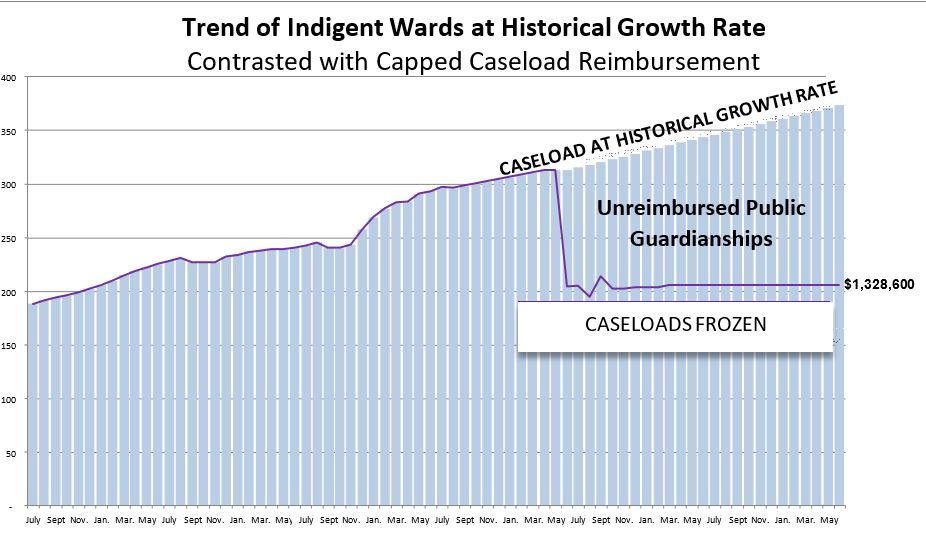Lawmakers Approve Increase to Public Guardianship Program
Funding for the Public Guardianship program was fairly small in size but will have one of the greatest impacts. Legislators approved an increase of $400,000 for the public guardianship program to bring the total funding to $1.95 million. This is a considerable increase to the current $1.32 million appropriation in this biennium, which has been kept level over the past three biennia.
“Legislators really understood how critical this funding is to protect the most vulnerable adults in our state and that more adults need guardians but are unable to receive assistance due to the funding freeze,” said North Dakota Association of Counties Assistant Executive Director of Policy Aaron Birst.
The Public Guardianship program provides assistance to individuals who the district court has determined are incapacitated and unable to adequately make decisions on their health, finances and other affairs due to their age, dementia, physical disability, mental illness, addiction, etc. These are citizens who are truly our most disadvantaged, and state support is vital in ensuring these individuals have someone to watch over their most serious needs.
150 Additional Citizens in Need of Public Guardianship Assistance
Birst continued, “This funding will truly make a difference in the lives of approximately 150 men and women who will now be able to qualify to receive a public guardian.”
As our elderly and disabled population has grown, so has the demand for public guardianships. It is projected that only 55% of the need is currently being supported at the current funding level. Due to funding being kept level over the past three biennia, the number of cases have been frozen at 205. The result is more guardianships being refused by existing guardians and no new guardians willing to serve.
The approved funding may also allow public guardians to receive an upward adjustment in their reimbursement rate. It has been at $8.33 per day per individual since the program was established in 2013. This could assist in retaining guardians and attracting new guardians who are willing to provide this vital service.
An advisory committee will meet prior to the start of the biennium to analyze the approved funding and determine the number of cases the funding will provide for, as well as address the reimbursement level.
